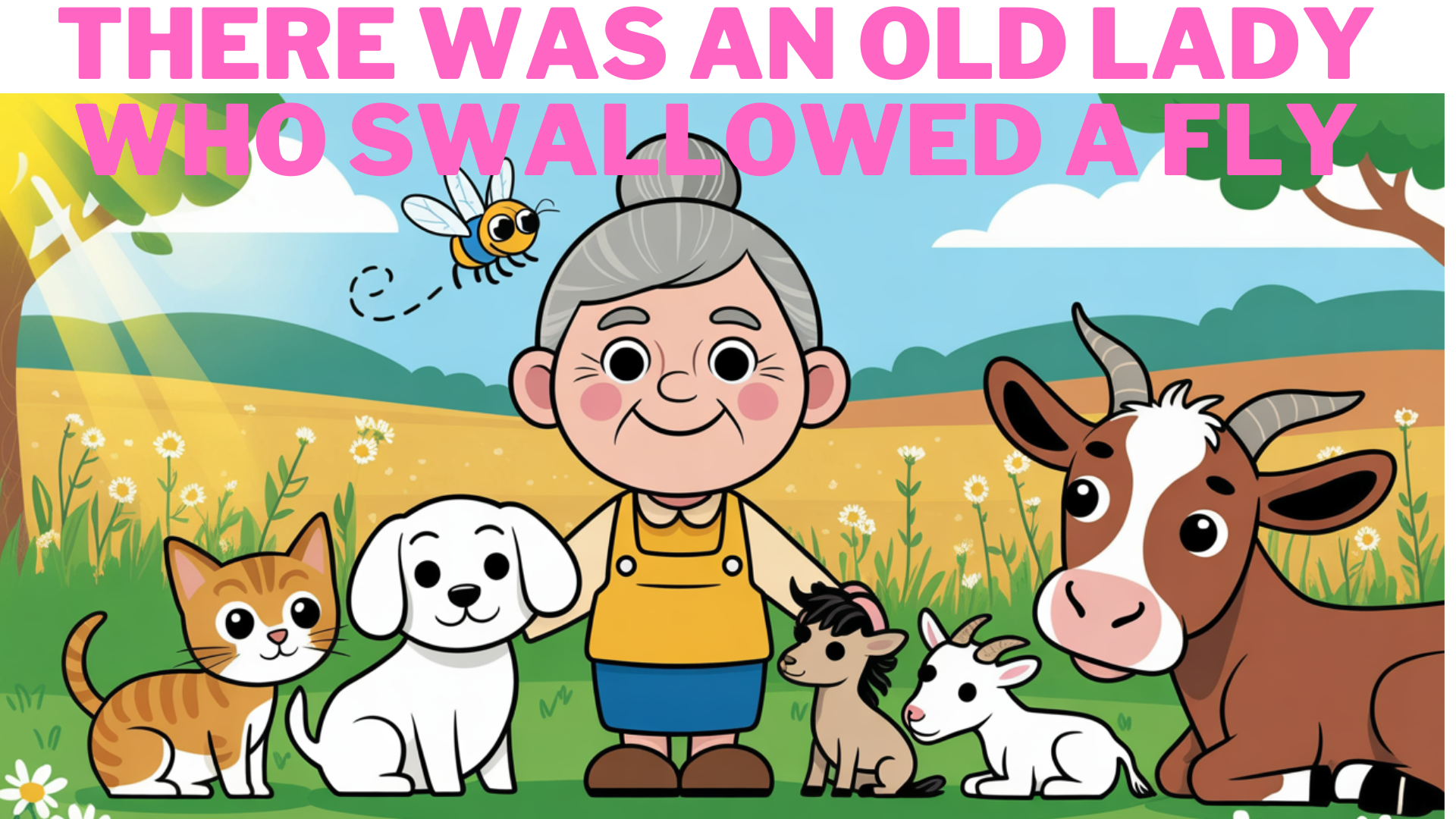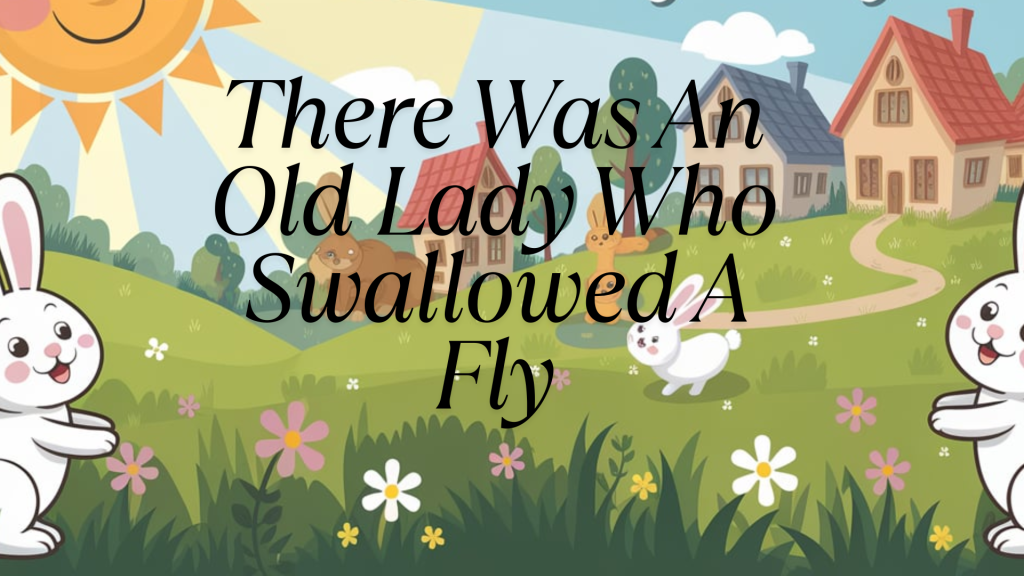Nursery rhymes are catchy and often feature whimsical scenarios that spark children’s imaginations.
The rhythmic patterns and repetition found in these rhymes are excellent for early language development, helping young children recognize sounds, words, and phrases. Additionally, these rhymes introduce important concepts such as sequencing and memory.
By repeating lines and verses, children can better grasp the order of events and improve their recall skills, making nursery rhymes a fun and educational tool for cognitive and language growth.
About the Song
There Was An Old Lady Who Swallowed A Fly rhyme features a quirky story where an old lady swallows a series of increasingly bizarre animals.
The rhyme is absurdity and humor keep young listeners entertained while also helping with language development.
| Detail | Information |
|---|---|
| Released | 1953 |
| Writers | Traditional |
| Producers | Traditional folk song |
There Was An Old Lady Who Swallowed A Fly Lyrics

There was an old lady who swallowed a fly,
I don’t know why she swallowed a fly – perhaps she’ll die!
There was an old lady who swallowed a spider
That wriggled and jiggled and tickled inside her;
She swallowed the spider to catch the fly;
I don’t know why she swallowed a fly – perhaps she’ll die!
There was an old lady who swallowed a bird;
How absurd to swallow a bird!
She swallowed the bird to catch the spider
That wriggled and jiggled and tickled inside her,
She swallowed the spider to catch the fly;
I don’t know why she swallowed a fly – perhaps she’ll die!
There was an old lady who swallowed a cat;
Well, fancy that, she swallowed a cat!
She swallowed the cat to catch the bird,
She swallowed the bird to catch the spider
That wriggled and jiggled and tickled inside her,
She swallowed the spider to catch the fly;
I don’t know why she swallowed a fly – perhaps she’ll die!
There was an old lady that swallowed a dog;
What a hog to swallow a dog!
She swallowed the dog to catch the cat,
She swallowed the cat to catch the bird,
She swallowed the bird to catch the spider
That wriggled and jiggled and tickled inside her,
She swallowed the spider to catch the fly;
I don’t know why she swallowed a fly – perhaps she’ll die!
There was an old lady who swallowed a goat;
Just opened her throat and swallowed a goat!
She swallowed the goat to catch the dog,
She swallowed the dog to catch the cat,
She swallowed the cat to catch the bird,
She swallowed the bird to catch the spider
That wriggled and jiggled and tickled inside her,
She swallowed the spider to catch the fly;
I don’t know why she swallowed a fly – perhaps she’ll die!
There was an old lady who swallowed a cow;
I don’t know how she swallowed a cow!
She swallowed the cow to catch the goat,
She swallowed the goat to catch the dog,
She swallowed the dog to catch the cat,
She swallowed the cat to catch the bird,
She swallowed the bird to catch the spider
That wriggled and jiggled and tickled inside her,
She swallowed the spider to catch the fly;
I don’t know why she swallowed a fly – perhaps she’ll die!
There was an old lady who swallowed a horse…
She’s dead, of course!
Similar Songs like There was an Old Lady Who Swallowed a Fly
Some similar nursery rhymes to There Was an Old Lady Who Swallowed a Fly that also feature humorous, repetitive, and whimsical storytelling:
- The Wheels On The Bus: It is a classic children’s song with repetitive verses about a bus journey and its passengers.
- Old Macdonald: Old Macdonald is a fun song with animal sounds and repetitive verses about different animals on a farm.
- Five Little Monkeys: This is a playful rhyme that involves a group of mischievous monkeys and their silly antics.
- London Bridge Is Falling Down: London Bridge is Falling Down is traditional rhyme about building and repairing a bridge, usually accompanied by a game.
Frequently Asked Questions
Why is There Was an Old Lady Who Swallowed a Fly Popular?
The rhyme is humorous and absurd nature, combined with its repetitive structure, makes it both entertaining and easy for children to remember.
Do Nursery Rhymes Help in Early Childhood Development?
They improve vocabulary, enhance cognitive skills, promote listening skills, and help with coordination through rhythmic patterns and actions.
When Should Children Start Listening to Nursery Rhymes?
Children can start listening to nursery rhymes as early as six months old, as the rhythmic sounds and repetition help with language development.





















